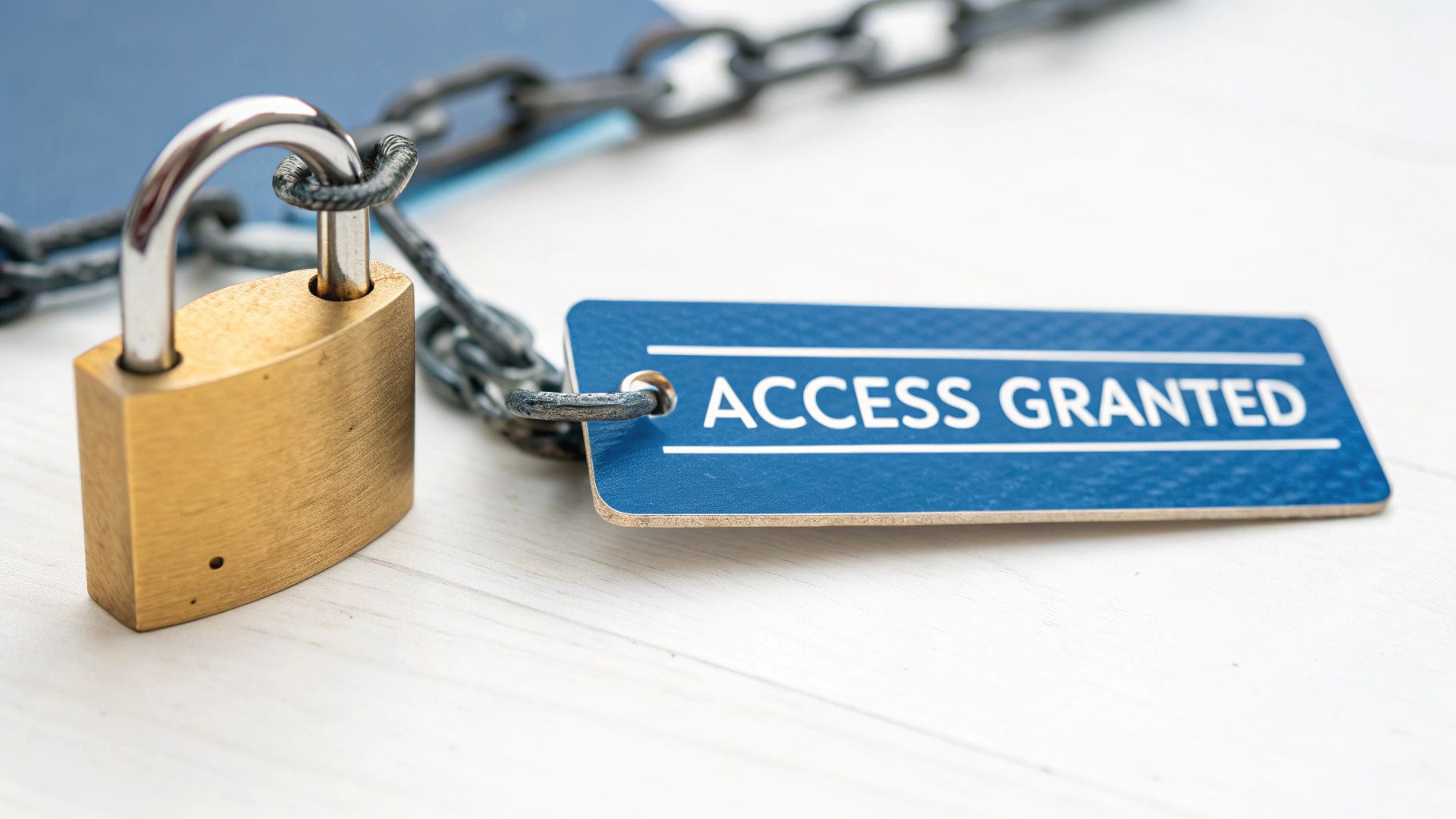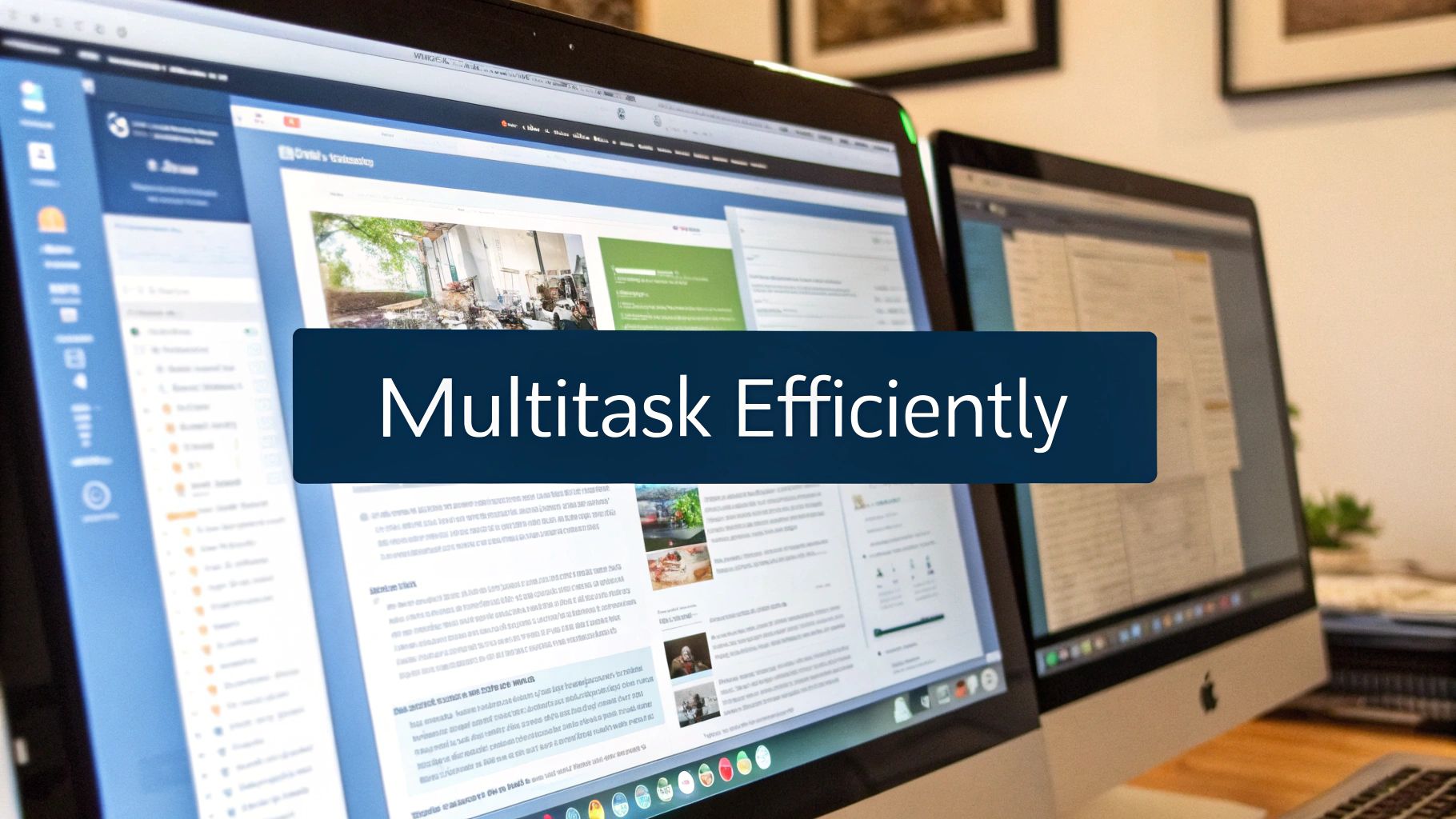How to Unblock Websites: A Strategic Guide for Safe and Secure Access
Understanding the Landscape of Digital Restrictions

Website blocking and internet censorship affect billions of users worldwide. Governments, organizations, and internet service providers (ISPs) use various methods to limit access to online content. To effectively bypass these restrictions, it's essential to understand why they exist and how they work.
Motivations Behind Digital Barriers
Several key factors drive website blocking decisions. Many governments block content to control information flow, particularly during sensitive periods like elections or social unrest. Companies often restrict access to protect their networks from security threats and malware. ISPs may block websites in response to copyright complaints or to meet legal requirements in their jurisdiction.
Technical Mechanisms of Website Blocking
Website blocking relies on several core methods. IP address blocking prevents users from connecting to specific servers – similar to putting up a barrier at a specific street address. DNS filtering stops users from finding a website's location, like removing an address from a map. Deep Packet Inspection (DPI) examines internet traffic in detail to filter specific content types. These methods impact a massive number of users – 4.2 billion people face internet censorship globally. For example, in Turkey, authorities blocked more than 450,000 websites between 2020 and 2024, costing the global economy $5.5 billion in 2021. For more details on censorship's global impact, check out these comprehensive statistics.
Impact on Users and the Need for Unblocking Solutions
Digital restrictions create real problems for people and businesses. Students may lose access to educational resources, while professionals struggle to collaborate with international partners. News readers face barriers to independent information sources. These challenges have created strong demand for reliable website unblocking tools. Understanding how different blocking methods work helps users choose the right solution for their needs – a topic we'll explore in detail next.
The Evolving Nature of Global Internet Freedom

Access to the open internet faces mounting challenges as governments and organizations implement new restrictions. This creates an ongoing push and pull between those seeking free access to information and entities working to control it. To effectively bypass blocks, we need to understand how these limitations are shifting.
The Spread of Content Blocking
Website restrictions are becoming more common across the globe. While strict internet control was once mainly associated with authoritarian states, we now see it expanding even in democratic nations. This manifests in several key ways:
- Political Control: Government blocking of sites expressing opposing views or criticism
- Copyright Protection: Regional content blocks and geo-restrictions from media companies
- Security Measures: ISPs and organizations blocking sites flagged as security risks
These overlapping barriers create complex challenges for internet users seeking open access.
Internet Freedom in Unexpected Places
Surprisingly, internet restrictions are growing in countries traditionally known for protecting free speech. A recent study found that between August 2018 and April 2020, 103 countries increased their internet censorship – including Norway, Japan, Italy, India, Israel, and Poland. For example, during the 2019 G20 Summit, Japan blocked access to certain news sites. Similarly, Sri Lanka temporarily shut down social media platforms following terror attacks. Read more about these trends in this University of Michigan research on global censorship.
Adapting to a Shifting Landscape
As restrictions evolve, so must the tools and strategies for accessing blocked content. Different situations call for different solutions – VPN services work well for bypassing geo-blocks, while proxy servers may better handle organizational firewalls. The key is staying informed about new restrictions and adjusting your approach accordingly. This awareness helps preserve access to information as controls expand worldwide.
The Business Impact of Digital Barriers
When websites get blocked, businesses feel real pain. From broken team communication to supply chain issues, restricted web access can seriously hurt a company's operations and bottom line.
The Cost of Disruption
A blocked website often means lost money and productivity for businesses. Picture a marketing team that suddenly can't check their campaign data, sales reps locked out of their customer records, or developers unable to access code repositories. Simple tasks grind to a halt.
Consider how much modern companies rely on cloud tools. When access gets cut off, basic work becomes impossible. Teams can't manage projects, share files, or even do their core jobs. This shows just how essential open internet access is for keeping business running smoothly.
Financial Fallout: Real-World Examples
The numbers tell a sobering story about website blocking costs. Take Russia in 2023 – government restrictions following the Ukraine invasion cost businesses an estimated $4 billion that year alone. The total price tag since February 2022? Over $21 billion, impacting 113 million people. Check out more details in these statistics on internet shutdown costs.
But this isn't just a Russian problem. Companies worldwide face similar challenges when internet freedom gets squeezed. Strict online controls make it hard to work with international partners, research markets, or even handle day-to-day transactions.
Navigating the Barriers: Strategies for Businesses
Smart companies plan ahead to handle website blocks. This means understanding what restrictions they might face and having backup plans ready.
- Use reliable VPN services: VPNs help bypass blocks and keep work flowing
- Have backup options: Don't depend on just one platform – have alternatives ready
- Create strong backup communication plans: Set up ways to stay connected that don't rely on blocked services
By planning for digital barriers and having solid workarounds, businesses can keep running even when websites go dark. Good preparation helps protect operations, productivity and profits when information access gets limited. It gives companies the tools to adapt quickly when restrictions hit.
Proven Methods for Secure Website Access
When websites are blocked, you have several reliable options to regain access. Each method offers different benefits in terms of security, speed, and ease of use. Let's explore the main approaches so you can choose what works best for your situation.
Using a Virtual Private Network (VPN)
A VPN helps you browse privately by creating an encrypted tunnel between your device and a server in another location. This masks your real location and lets you bypass regional restrictions. For example, ProtonVPN provides strong security while allowing access to blocked content. The main trade-off is that VPNs can reduce your connection speed somewhat.
- Benefits: Full traffic encryption, gets around geographic blocks, keeps browsing private
- Drawbacks: May slow down connections, requires choosing a good provider
- How to use: Pick a VPN service, install their app, connect to a server, and browse normally
Utilizing a Proxy Server
Think of a proxy server as a middleman that passes your web requests through its own address. While proxies can unblock sites quickly, they typically don't encrypt your data like VPNs do. This makes them better suited for basic access rather than security.
- Benefits: Generally faster than VPNs for simple unblocking
- Drawbacks: Limited security features, less privacy protection
- How to use: Find a reliable proxy address, add it to your browser settings, then browse
Exploring the Tor Network
The Tor network works by bouncing your traffic through several volunteer servers, making it very hard to track. This provides excellent privacy and can bypass tough blocks. However, all those connection hops mean much slower speeds compared to regular browsing.
- Benefits: Strong anonymity features, works against strict censorship
- Drawbacks: Quite slow, takes more effort to set up
- How to use: Get the Tor Browser, install it, open it and start browsing
Modifying Your DNS Server
Your Domain Name System (DNS) server converts website names into the IP addresses computers use. Sometimes switching to a different DNS server lets you access blocked sites. While this is an easy change to make, it won't work for all types of blocking.
- Benefits: Quick to set up, can improve load times
- Drawbacks: Only bypasses basic blocks, minimal privacy
- How to use: Go to network settings, enter a public DNS (like Google's or Cloudflare's), test blocked sites
Comparing Unblocking Methods
This table shows how the different methods stack up:
| Method | Security | Speed | Ease of Use | Best For |
|---|---|---|---|---|
| VPN | High | Medium | Easy | Getting around geo-blocks safely |
| Proxy | Low | Fast | Easy | Quick access with less security |
| Tor | Very High | Slow | Medium | Maximum privacy needs |
| DNS Change | Low | Fast | Easy | Basic blocks and speed |
Pick the method that matches your priorities around security, speed and simplicity. Focus on protecting your privacy while getting the access you need.
Advanced Strategies for Complex Restrictions
When basic methods aren't enough to access blocked websites, you need more advanced techniques. Let's explore proven strategies for bypassing complex restrictions while keeping your online activity private and secure.
Combining Methods for Enhanced Unblocking
One tool alone often falls short against sophisticated blocking systems. By combining different approaches, you can create a more effective solution. For example, using a VPN with the Tor Browser gives you extra anonymity and helps get around VPN blocks. While this setup takes more work to configure, it offers better protection against deep packet inspection. You can also pair a proxy server with custom DNS settings to improve speed while still bypassing basic blocks.
Emerging Technologies and Their Role in Access
New tools keep appearing that change how we get around internet blocks. Shadowsocks has become a go-to choice for securely bypassing censorship, working particularly well in heavily restricted regions. Another promising development is blockchain-based DNS, which could help avoid traditional DNS blocking by spreading domain resolution across many computers. These tools show how unblocking methods keep evolving to stay ahead of restrictions.
Building Robust Strategies for Restricted Environments
When dealing with strict internet controls, you need a complete plan that adapts as blocking methods change. Here are key practices to follow:
- Test your tools regularly: Make sure your chosen methods still work effectively
- Keep up with censorship changes: Know what specific blocks exist in your area
- Use multiple access methods: Don't depend on just one tool or server
- Focus on security: Pick options that encrypt your data and protect your privacy
Technical Considerations and Security Implications
Getting these advanced methods right requires understanding how they work. Poor setup can expose your browsing activity and defeat the purpose of using privacy tools.
Here's what to consider for each main approach:
| Feature | VPN | Proxy Server | Tor Browser |
|---|---|---|---|
| Encryption | Strong | Usually None | High |
| Speed | Moderate | Generally Fast | Slow |
| Anonymity | High | Low | Very High |
| Setup | Easy | Easy | Moderate |
| Security Risk | Low (with reputable provider) | Moderate to High | Low (if used correctly) |
Understanding these details helps you pick the right solution and use it safely. For more guidance on private browsing, check out resources on DebugBar.com. Taking this informed approach lets you access blocked sites while staying secure online.
Mastering Privacy and Security Protocols
Online safety requires careful attention, particularly when accessing blocked websites. Let's explore practical ways to protect your information while using website unblocking tools.
Understanding Encryption and Its Importance
Encryption works like a secure digital safe for your data – it scrambles the information so only authorized recipients can read it. When you use unblocking tools like VPNs, strong encryption keeps your browsing private. The most secure option currently available is 256-bit AES encryption, which leading VPN services use to protect user data.
Preventing Traffic Analysis
Your internet provider can see that you're using a VPN, even if they can't view the actual content. This is called traffic analysis – studying internet traffic patterns to understand user behavior. Some unblocking methods like Tor specifically prevent this by routing your connection through multiple servers, making it much harder to track your online activities.
Best Practices for Secure Browsing While Unblocking Websites
Here are key ways to protect your privacy:
- Pick trusted VPN providers: Look for strong encryption, clear privacy policies and proven security track records. Avoid free VPNs since they often sell user data.
- Keep software updated: Regular updates to your operating system, browser and VPN client fix security gaps that could be exploited.
- Take care on public Wi-Fi: Don't access sensitive information or use unblocking tools on open networks that others could monitor.
- Use strong passwords: Create unique, complex passwords for each account, including your VPN. A password manager helps maintain this habit.
- Enable two-factor authentication: Add an extra security step, like a phone verification code, to prevent unauthorized account access.
- Know the risks: Different unblocking methods offer varying levels of privacy protection. Choose one that matches your security needs.
Assessing and Mitigating Vulnerabilities
Review your online security regularly by asking:
- Are there weak points in my current setup?
- Am I using the most secure unblocking method for my needs?
- Do my passwords need updating?
Regular security checks help you spot and fix potential issues before they become problems. Following these practices lets you safely access blocked content while protecting your privacy.
By combining secure tools with good browsing habits, you can effectively unblock websites without putting your information at risk. The key is staying aware of potential vulnerabilities and taking steps to address them.
Want to learn more about staying safe online? DebugBar.com offers expert guides on VPNs, cybersecurity best practices, and protecting your privacy while browsing. Visit today to boost your online security knowledge.

